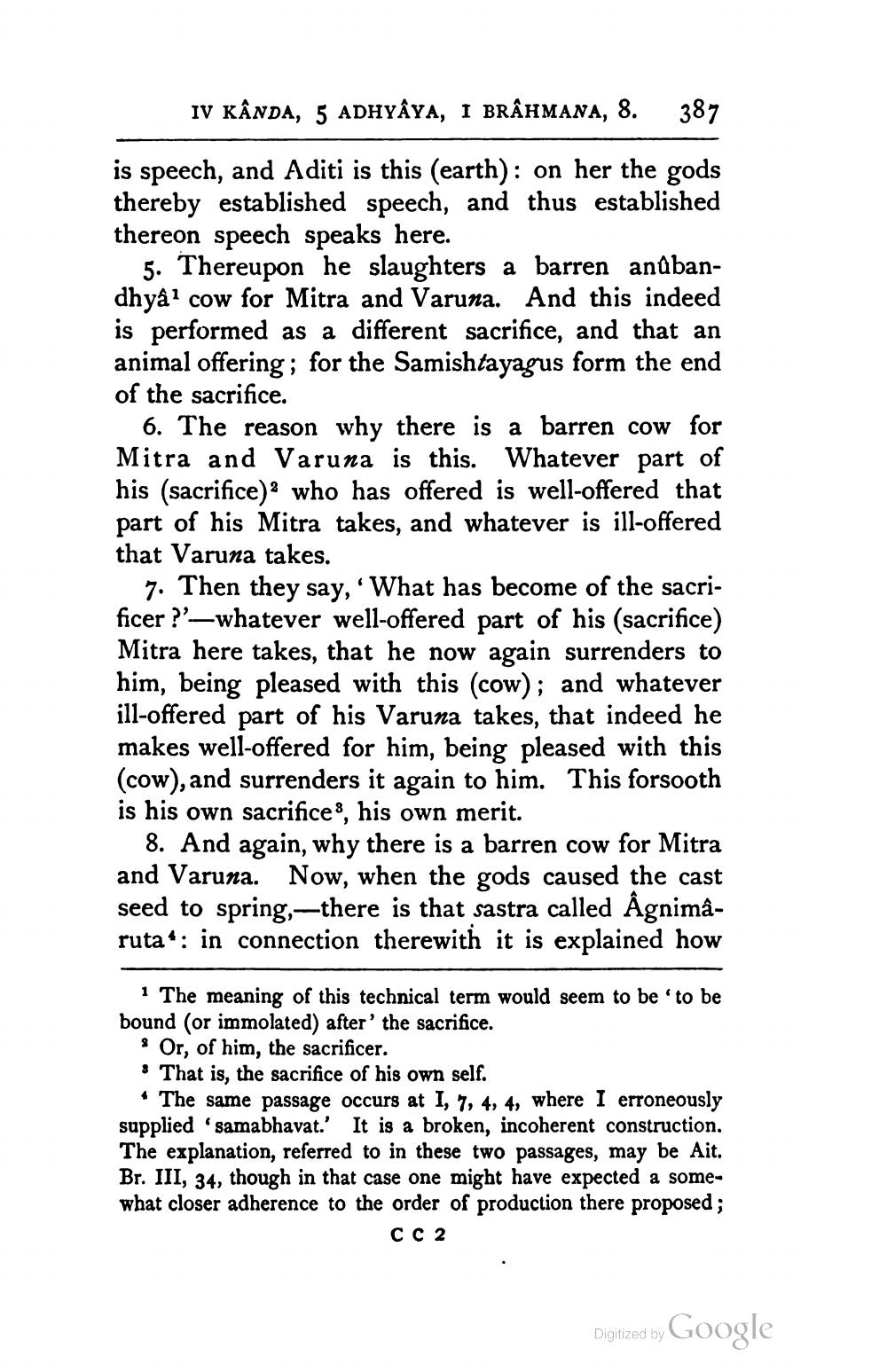________________
IV KÂNDA, 5 ADHYAYA, I BRÂHMANA, 8.
387
is speech, and Aditi is this (earth): on her the gods thereby established speech, and thus established thereon speech speaks here.
5. Thereupon he slaughters a barren anûbandhyâ? cow for Mitra and Varuna. And this indeed is performed as a different sacrifice, and that an animal offering; for the Samishtayagus form the end of the sacrifice.
6. The reason why there is a barren cow for Mitra and Varuna is this. Whatever part of his (sacrifice)? who has offered is well-offered that part of his Mitra takes, and whatever is ill-offered that Varuna takes.
7. Then they say, 'What has become of the sacrificer ?'—whatever well-offered part of his (sacrifice) Mitra here takes, that he now again surrenders to him, being pleased with this (cow); and whatever ill-offered part of his Varuna takes, that indeed he makes well-offered for him, being pleased with this (cow), and surrenders it again to him. This forsooth is his own sacrifices, his own merit.
8. And again, why there is a barren cow for Mitra and Varuna. Now, when the gods caused the cast seed to spring,—there is that sastra called Agnimâruta: in connection therewith it is explained how
1 The meaning of this technical term would seem to be 'to be bound (or immolated) after the sacrifice.
* Or, of him, the sacrificer. * That is, the sacrifice of his own self.
• The same passage occurs at I, 7, 4, 4, where I erroneously supplied 'samabhavat.' It is a broken, incoherent construction. The explanation, referred to in these two passages, may be Ait. Br. III, 34, though in that case one might have expected a somewhat closer adherence to the order of production there proposed;
CC 2
Digitized by Google




